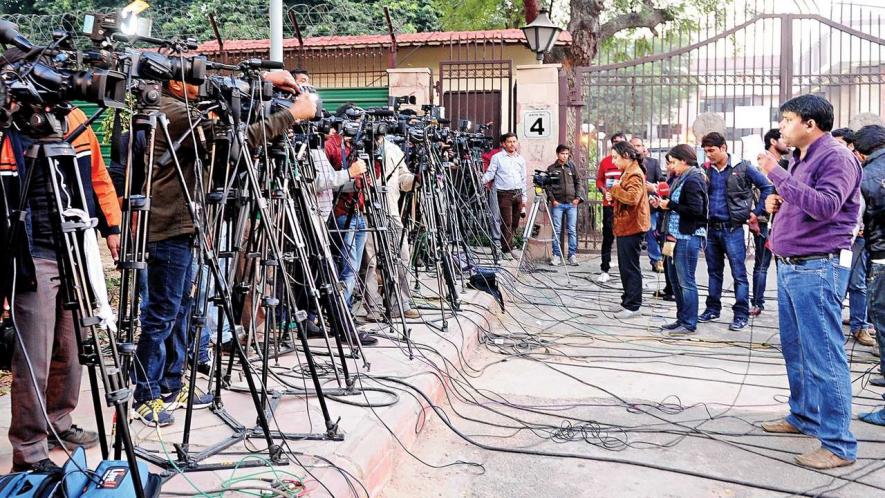Move to Kill Wage Boards and Working Journalists Act

For the first time since the inception of wage boards for journalists and press workers in 1955, the government of India has tried a filibuster to kill the overdue wage board, despite demands raised by some central and state unions of journalists. Not only this, it has now taken the ruse of ‘subsuming’ it in the proposed‘Code on Wages Bill 2017’ that the government claims is ‘currently in the Lok Sabha. In fact, just a month ago, it openly admitted in a letter to the president of the National Alliance of the Journalists, that there is ‘no proposal presently to constitute a wage board.’
Some more facts are indeed interesting. The bait of the Code on Wages Bill has been rejected by most trade unions who want it to go lock-stock and barrel for its anti-worker components. Furthermore, the Bill has been gathering dust there since 2017 because of fear of opposition.
There are four laws on wages -- Minimum Wages Act, Payment of Wages Act, Equal Remuneration Act and the Bonus Act. Can these be replaced by a singleBill? In any case, the wage board for working journalists falls under Industrial Disputes Act and cannot come under the wage code Bill. In any case, since the proposed law has not been passed, how can a working journalists wage board passed by an Act of Parliament be given the go-by?
The current situation in the newspaper industry where journalism of contract, vouchers and other subterfuges reigns supreme, where hundreds of journalists and press workers have been made victims of unfair labour practices, with cases pending in courts for years, can be termed as nothing short of ‘jungle law’. Already, over a dozen workers, including a journalist of the Hindustan Times Group, died while fighting the cases. Add to this therecent dismissal of wage board workers and the so-called Voluntary Retirement Scheme in news agency Press Trust of India, all moves to kill the wage board and the Working Journalists Act, 1955.
It is interesting to recall that none of the previous wage boards were given the go-by by any Central government. Ironically, measures like the journalists wage board, the Press Commission and the Press Council cam were borne out of Nehruvian thinking with many of these ideas emanating from Indias first Prime Minister Jawaharlal Nehru.
Today, when the need of the hour is an autonomous media commission to take stock of the state of the entire sector since globalisation, includinggrowing attacks on media personnel and their wages, a more encompassing Media Council to replace the outdated Press Council is a necessity. Also, steps are necessary to make the Working Journalists Act applicable to other media too (audio, visual and online). Indeed, the Government is putting the clock back, obviously under pressure from media barons, old and new.
Get the latest reports & analysis with people's perspective on Protests, movements & deep analytical videos, discussions of the current affairs in your Telegram app. Subscribe to NewsClick's Telegram channel & get Real-Time updates on stories, as they get published on our website.














